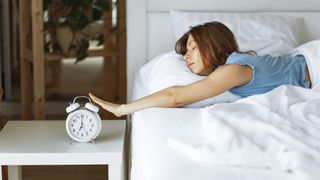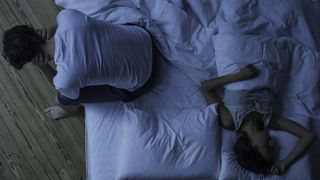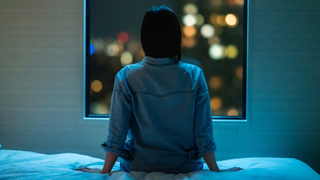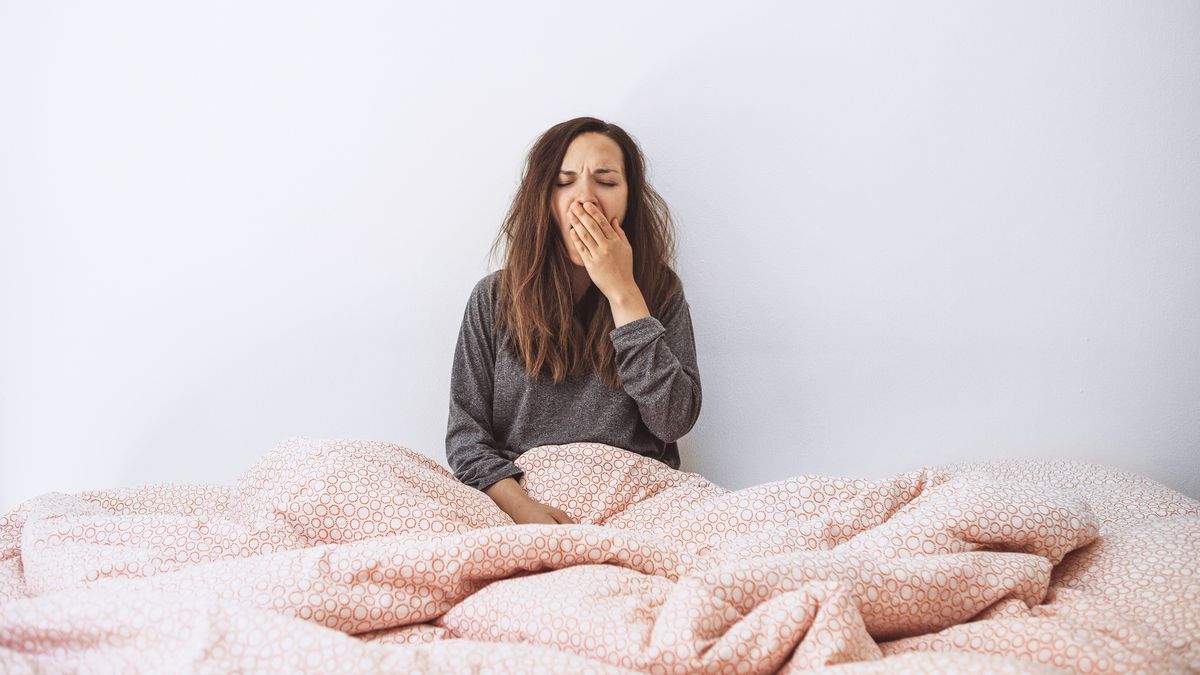Sleepwalking, also known as somnambulism, is a type of parasomnia that affects some adults and, more commonly, children. It refers to when people carry out complex activities while not being fully conscious, normally walking.
If you haven’t experienced it yourself, you may have found a friend or family member sleepwalking. The state between wakefulness and sleep means people can often communicate while sleepwalking and can have open, but glassy, eyes. Not only can it feel deeply unsettling (for both parties), it can also be dangerous, especially if sleepers venture outside of their home.
However, there are some things you can do that will help prevent sleepwalking episodes. Here, with the help of Dr Chelsea Perry, owner of Sleep Solutions and a Diplomate of the American Board of Dental Sleep Medicine, we’re going to be asking the key questions about this sleep disorder, including how to stop it, why it happens, and whether it’s ever a cause for concern.
Can you stop sleepwalking?
While there isn’t a specific treatment that can stop sleepwalking for good, there are multiple ways you can reduce the likelihood or severity of sleepwalking. Dr Perry says “with the right adjustments, you can usually reduce or stop sleepwalking altogether.”
Treatments vary from lifestyle changes to therapy, and the type you’ll need depends on the severity of your sleepwalking episodes, how it’s impacting your day-to-day life, and whether it’s an indicator of an underlying health problem.
3 ways to stop sleepwalking
These three key lifestyle changes can greatly reduce sleepwalking episodes, and improve your quality of sleep overall.
1. Keep a consistent sleep schedule
The benefits of a consistent sleep schedule cannot be overstated. Dr Perry explains that “to help prevent sleepwalking, it’s important to focus on getting enough quality sleep. A consistent sleep schedule can make a big difference.”
As well as improving the quality of your sleep and your energy levels during the day, setting and sticking to a consistent sleep schedule will ensure you’re getting the right amount of sleep and preventing sleep deprivation, which research shows can be a trigger for sleepwalking.

2. Improve your sleep hygiene
Dr Perry also explains how “stopping sleepwalking often starts with improving your overall sleep hygiene.” Sleep hygiene refers to the habits or activities we do before bed that can impact our sleep, as well as the environment that we sleep in. That includes ensuring that you're sleeping on the best mattress for your body type, your bedroom is the right temperature for sleep, and that you've blocked out any ambient light and sound.
“Getting enough rest, avoiding alcohol or heavy meals before bed, and reducing stress can all help minimize episodes,” Dr Perry adds. Avoiding caffeine and other stimulants in the afternoon is also an effective step.
3. Create a relaxing bedtime routine
Nighttime routines aren’t just for children. In fact, they can be incredibly beneficial for adults, from helping us fall asleep faster and ease nighttime anxiety. Dr Perry emphasises the importance of “creating a calming bedtime routine to ease stress before bed.”
Stress can be a key cause of sleepwalking, but having a dedicated time to wind down at the end of the day can help prepare our minds and body for sleep. Try a hot bath or shower before bed, and try to avoid screens directly before bed for better sleep quality, opting to read a book or listen to music instead.

Why do people sleepwalk?
There are many reasons why people sleepwalk. Certain medications and underlying health problems can make you more susceptible to sleepwalking, so if you’re concerned it’s always best to talk with your doctor or health professional.
“Sleepwalking is often triggered by a combination of factors like sleep deprivation, stress, and irregular sleep patterns," Dr Perry explains. "Certain medications, alcohol, or even a fever can also push the brain into a state where you're physically active during deep sleep. Genetics play a role too, so if it runs in the family, you might be more prone to it."
It's often nothing to worry, and common causes include:
Stress
Stress is commonly associated with sleepwalking, with one study finding that stressful events during the day were a main trigger of sleepwalking.
Sleep deprivation
The more sleep deprived you are, the more likely you are to sleepwalk. Research suggests that sleepwalking episodes increase with sleep deprivation.

Alcohol intake
While it can be hard to prove the link between alcohol and sleepwalking, many people have reported observing an increase in sleepwalking when they drink alcohol.
High fever
Fevers can cause sleep disturbances and night terrors, also known as fever dreams. These disturbances can also include sleepwalking. Stress is commonly associated with sleepwalking, with one study finding that stressful events during the day were a main trigger of sleepwalking.
Is sleepwalking dangerous?
When to see a doctor
If your sleepwalking episodes continue despite trying these preventative techniques, Dr Perry advises “to consult a doctor to rule out any underlying sleep disorders or medications that could be contributing.”
While sleepwalking is usually harmless, there are risks associated with it, with Dr Perry explaining that “it can become a cause for concern if the person wanders into unsafe areas or injures themselves.”
She warns that “the risk mainly comes from what someone might do while sleepwalking, like falling down stairs or leaving the house. If it happens frequently or leads to potentially hazardous situations, it’s worth addressing with a doctor to ensure safety and figure out any underlying causes.”
The main risks involve the danger a sleepwalker can put themselves in while walking. Here are some ways to reduce the risks:
- Add locks to the bedroom
- Remove obstacles in the bedroom and around the house
- Lock doors and windows to the outside
- Remove sharp or dangerous objects





















 English (US) ·
English (US) ·